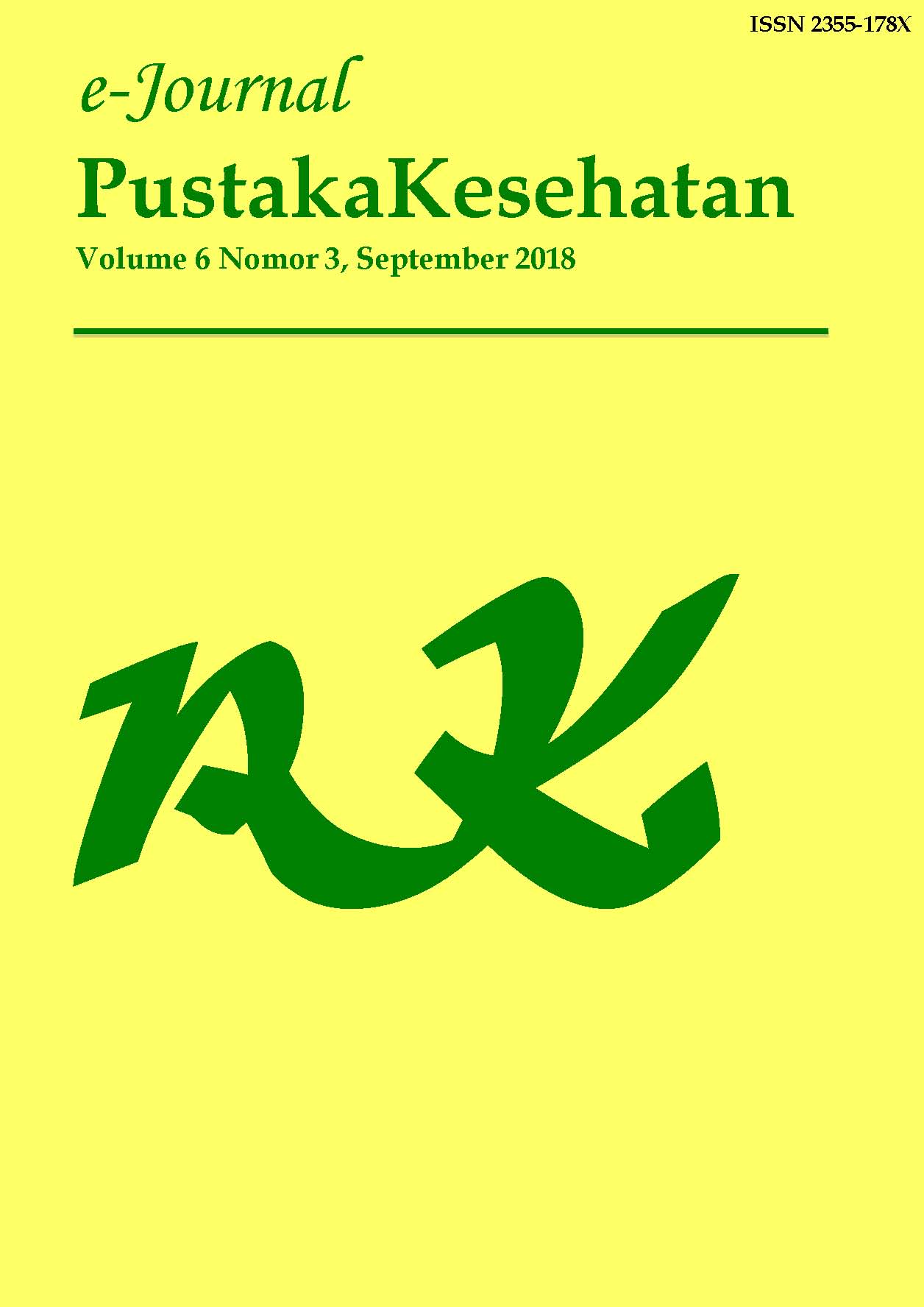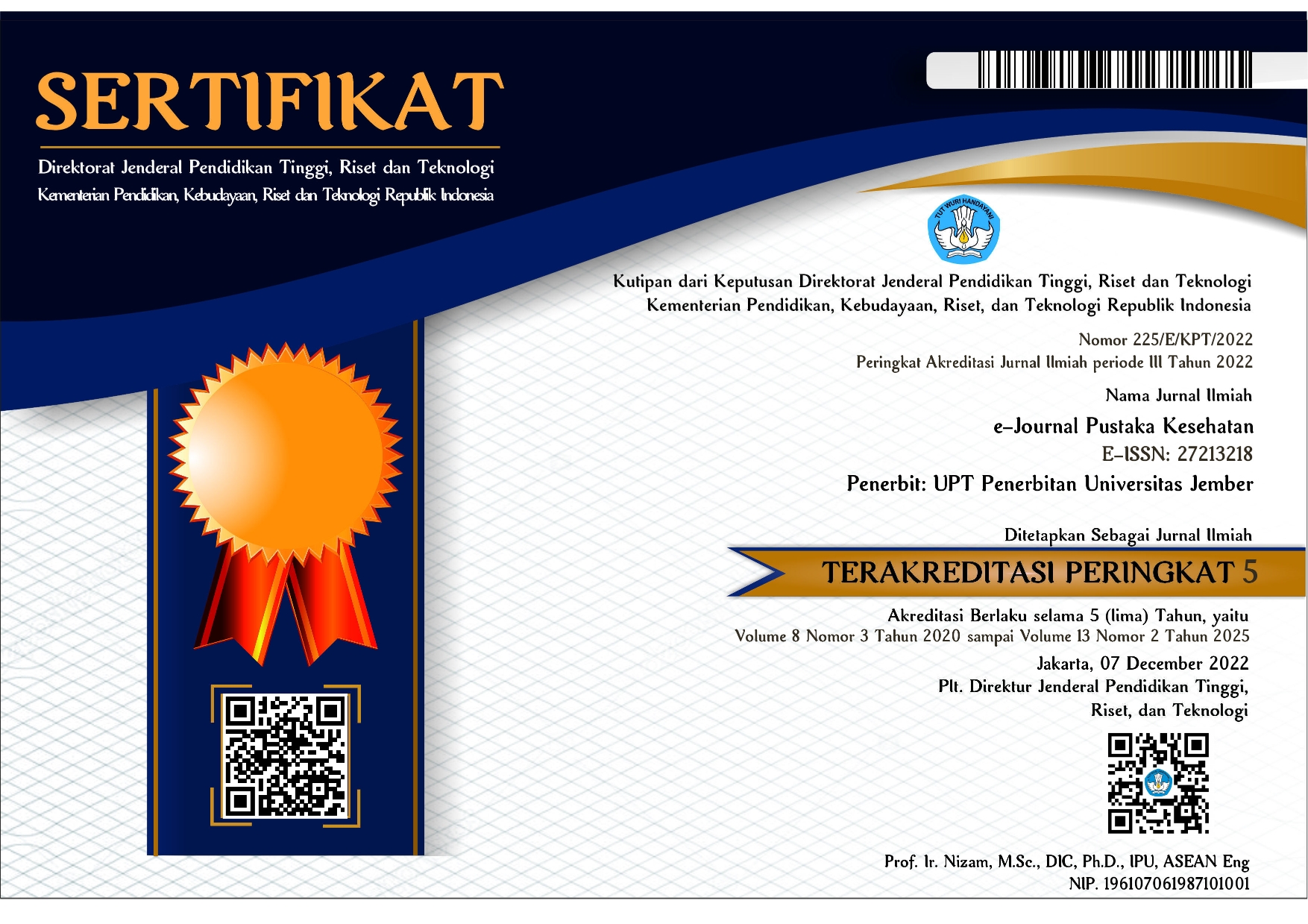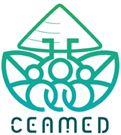Pengaruh Diabetes Self-Management Education and Support (DSME/S) Terhadap Kualitas Hidup pada Pasien Diabetes Melitus Tipe 2
DOI:
https://doi.org/10.19184/pk.v6i3.11688Abstract
Type 2 DM is a chronic disease requiring long-term care, so it needs self-management education to
prevent the complication. The patient's inability to perform self-care can reduce the quality of life. DSME/S
is one of education which facilitates knowledge, skills, patient abilities, and family support in self-care.
DSME/S is given in the form of discharge planning to improve knowledge and skills in self-care. This
research aimed to analyze the effect of Diabetes Self-Management Education and Support (DSME/S) on
quality of life of patients with type 2 diabetes mellitus in RSD dr. Soebandi. The research design was
quasi experimental with pre-test post-test with control group design. A number of samples were 30 people
divided into two groups: 15 people in the treatment group and 15 people in the control group. DSME/S
was conducted in 6 sessions. Sessions 1-4 were performed in the hospital and sessions 5-6 were
performed at the patient’s home. The data were analyzed by using dependent t test and independent t
test which significance level of 0.05. The result of t-dependent test indicated that there was significant
different quality of life between pre-test and post-test in the treatment group (p = 0.001) and control group
(p = 0.002). The result of Independent t test showed a significant difference between treatment group and
control group (p = 0.001). The enhancement of quality of life on the treatment group was greater than the
control group. The conclusion showed that there was significant effect of DSME/S on the quality of life of
type 2 DM patients. DSME/S could improve patient self-care knowledge and abilities in controlling blood
sugar and prevent complications may effect of quality of life. Nurses can apply DSME/S in health
promotion programs to type 2 DM patients in hospital.
Keywords: Type 2 diabetes mellitus, quality of life, DSME/S
Downloads
Downloads
Published
Issue
Section
License
e-Journal Pustaka Kesehatan has CC-BY-SA or an equivalent license as the optimal license for the publication, distribution, use, and reuse of scholarly work. Authors who publish with this journal retain copyright and grant the journal right of first publication with the work simultaneously licensed under a Creative Commons Attribution-ShareAlike 4.0 International License that allows others to share the work with an acknowledgment of the work's authorship and initial publication in this journal.







